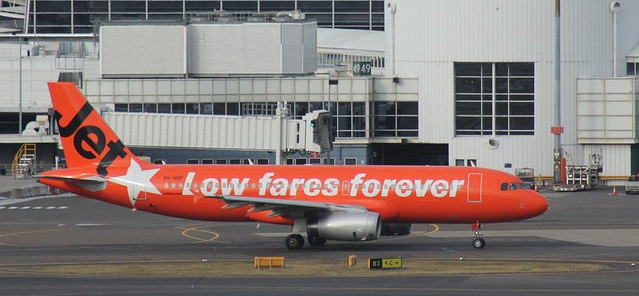Working remotely offers excitement, productivity, and new horizons while maintaining a career. However, it requires strategic budgeting and financial planning for remote work and travel.
This post focuses on modern nomads who want the perfect balance of business and travel. It teaches how to create watertight budgets for trips, covering transportation, accommodations, meals, work-related expenses, and pleasure.
It also explains how to align travel goals with short-term achievements and long-term plans. The post also discusses strategies to stretch money, such as choosing off-peak seasons and curating destination lists.

The Importance of Budgeting
Before you pack your bags and start on remote work and travel, you’ll need one important companion: a well-planned budget. Budgeting is more than just a buzzkill; it’s your compass, leading you through your journey’s financial landscape. Here’s why it’s more important than you would think:
Understanding the Financial Implications
Navigating remote work travel without a clear budget is like wandering through a foreign city without a map. Understand the financial implications of your journey, from transportation costs to day-to-day expenses. This information helps you anticipate financial needs and make informed decisions along the way.
Assessing Individual Financial Capacity
Budgeting is about empowerment, not restrictions. Realistically assess your financial capacity and set limitations that work for you. Determine how much you can easily allocate to various areas of your journey, ensuring you have control over your spending and confidence in your financial decisions.
Creating a Comprehensive Travel Budget
You’re about to create a travel budget that’s as dynamic as your journey. Building a complete budget is about more than just keeping track of spending; it’s about laying the groundwork for a worry-free adventure. Here’s how to put together a budget that will be your best remote work and travel companion:
Transportation and Commuting Costs
Getting around is an important part of any remote business travel experience, from flights to local transportation. Consider transportation costs down to the last mile, including flights, trains, buses, and even rideshares. By budgeting for these costs, you can ensure smooth transitions from one location to the next.
Accommodation Expenses
Your home away from home deserves a budget line. Outline your hotel costs, whether you choose charming Airbnb apartments or colourful hostels. Consider factors such as location, length of stay, and amenities to get a clear picture of your lodging costs.
Meals and Daily Expenses
Tasting new cuisines and indulging in daily delights are essential parts of your trip. Set aside a percentage of your budget for meals and expenses, including dining out, shopping, and those unexpected café trips. Enjoy remote work and travel without breaking the bank.
Work-Related Expenses
Remote work and travel isn’t just for fun; job commitments come with it. Set aside a portion of your budget for work-related expenses, such as co-working space, internet bills, or technological necessities. Keeping this in mind will help you stay professional.
Incorporating Travel into Financial Goals
Are you ready to combine your desire to travel the world with your financial goals? It’s not only about the trip; it’s about arriving at your destination with a solid financial plan. Here’s how to balance the two:
Aligning Travel with Short-Term Goals
Who said travel and financial ambitions couldn’t go together? Learn how to align your short-term financial goals with your travel plans. Whether you’re saving for a rainy day or paying off debt, your trip becomes a smart stepping stone toward your financial goals.
Impact on Long-Term Financial Plans
Remote work and travel is a way of life that can last for years. Dive into the world of long-term financial planning to see how your trip plans fit into your retirement goals, investing methods, and plans. It’s about incorporating your trip into your financial story.
Strategies for Cost-Effective Remote Work Travel
Are you ready to become a clever traveller who can stretch a dollar? Learn to be a financial wizard by designing your remote work and travel experiences without going broke. Prepare yourself for strategies that will make your journey both economical and enriching:

Choosing Affordable Destinations
In terms of cost, not all locations are created equal. Discover the secrets to choosing budget-friendly destinations. Your dream destinations can be kind to your budget, from undiscovered gems with cheaper living costs to places providing seasonal discounts.
Travelling During Off-Peak Seasons
When it comes to travel costs, timing is important. Discover off-season travel when you can find lower airfares, better accommodation rates, and fewer crowds. You can appreciate the beauty of a trip while keeping your bank account in good shape by being clever with your remote work and travel dates.
Leveraging Travel Rewards and Points
Consider converting your regular spending into free flights and hotel stays. You can if you have the correct information. Check out travel incentives, credit card points, and loyalty programs. Learn how to acquire and strategically use these incentives to transform your limited trip budget into an exceptional one.
Maintaining Financial Sustainability
The freedom of the open road is appealing, but what about maintaining your funds while you travel? It’s never been easier to strike a balance between adventure and budget. Let’s take a look at financial responsibility.
Tracking and Managing Expenses
Mastering spending tracking is essential for financial navigation, allowing for efficient budget management through various solutions like mobile apps and spreadsheets.
Adapting Budgets to Unforeseen Circumstances
Travel, like life, is full of surprises. Learn to deal with unanticipated twists and turns by modifying your budget to changing conditions. Whether it’s a last-minute travel delay or a tempting local experience, being flexible with your financial plan allows you to stay in control even when life throws you a curveball.
Conclusion
The key to success in remote work and travel is budgeting and financial planning. Create a comprehensive budget, align travel with financial goals, and use smart tactics to maximize your dollar. Financial sustainability is more than just numbers; it’s empowerment and knowing the tools to handle financial crises.
Start your journey confidently, allowing each decision to enrich your future. Your laptop serves as a window to the world, and your budget serves as your roadmap.
Is it your dream to travel and work, or are you happy with a traditional 9-5 job? We would love to hear about your experiences.


This post honestly hits home. Remote work looks easy from the outside, but it’s such a roller coaster of discipline and freedom.
Hi Zidane. Thanks for weighing in. Absolutely! I agree with you. Something always crops up to throw you off so it really takes a great deal of discipline and organization. Great analogy by the way!